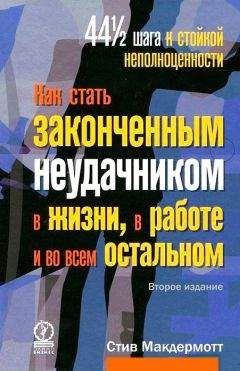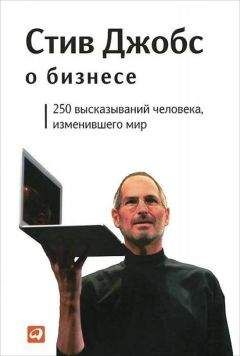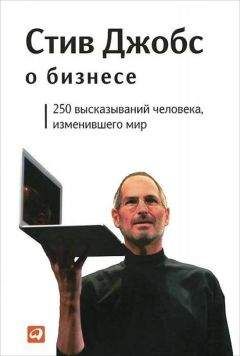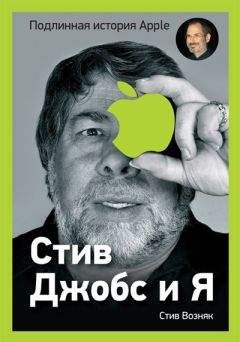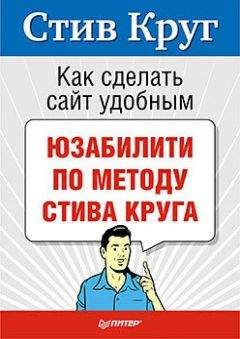Михаил Сарапов - Английский для смелых. Истории о духах и привидениях / Great Ghost Stories
He smiled again, rang the bell, gave the old servant his directions, and, taking a bottle of whisky and a wineglass from the cupboard in which he kept his chemicals, said:
‘The snow lies deep, and it will be difficult walking tonight on the moor. A glass of usquebaugh before you start?’
I would have declined the spirit, but he pressed it on me, and I drank it. It went down my throat like liquid flame, and almost took my breath away.
‘It is strong,’ he said; ‘but it will help to keep out the cold. And now you have no moments to spare. Good night!’
I thanked him for his hospitality, and would have shaken hands, but that he had turned away before I could finish my sentence. In another minute I had traversed the hall, Jacob had locked the outer door behind me, and we were out on the wide white moor.
Although the wind had fallen, it was still bitterly cold (хотя ветер стих, по-прежнему было очень холодно; bitterly – горько; резко, сильно). Not a star glimmered in the black vault overhead (ни звезды /не/ мерцало на черном небосводе над нами; vault – свод; /поэт./ небосвод). Not a sound, save the rapid crunching of the snow beneath our feet, disturbed the heavy stillness of the night (ни звука, если не считать скрипа снега под нашими ногами, /не/ нарушало мрачной тишины ночи; save – /предл./ за исключением, кроме; rapid – быстрый, скорый, стремительный; heavy – тяжелый; мрачный, темный, покрытый тучами). Jacob, not too well pleased with his mission (Джейкоб, не очень-то довольный своим поручением; mission – миссия; поручение), shambled on before in sullen silence (шаркал ногами впереди в угрюмом молчании; to shamble – волочить ноги, тащиться; шаркать), his lantern in his hand, and his shadow at his feet (/c/ фонарем в руке, и его тень послушно бежала следом: «его тень у его ног»). I followed, with my gun over my shoulder (я шел за ним с ружьем за плечом), as little inclined for conversation as himself (столь же мало расположенный к беседе, как и он). My thoughts were full of my late host (все мои мысли были о хозяине недавно оставленного дома: «были полны недавним хозяином»). His voice yet rang in my ears (его голос еще звучал у меня в ушах; to ring – звенеть; звучать). His eloquence yet held my imagination captive (его красноречие все еще пленяло мое воображение; to hold – держать; удерживать, задерживать; captive – взятый в плен; to hold captive – держать в плену). I remember to this day, with surprise (по сей день я, к моему удивлению: «с удивлением», помню), how my over-excited brain retained whole sentences and parts of sentences (как мой перевозбужденный мозг запечатлел целые предложения и части предложений; to retain – держать; сохранять, удерживать), troops of brilliant images (вереницы блестящих образов; troop – отряд, группа людей; стадо, стая, рой; troops – большое количество, масса), and fragments of splendid reasoning (фрагменты великолепной аргументации; reasoning – рассуждение, объяснения; аргументация), in the very words in which he had uttered them (теми самыми словами, которыми он их излагал; to utter – произносить; излагать, выражать словами). Musing thus over what I had heard (размышляя таким образом над тем, что я услышал), and striving to recall a lost link here and there (пытаясь припомнить утраченную /логическую/ цепочку там и сям; link – звено /цепи/; связь; соединение), I strode on at the heels of my guide, absorbed and unobservant (я шагал по пятам моего проводника, поглощенный /своими мыслями/, ничего не замечающий вокруг; to stride – шагать /большими шагами/; to absorb – увлекать, поглощать; unobservant – невнимательный, ненаблюдательный). Presently – at the end, as it seemed to me, of only a few minutes (вскоре – по прошествии: «в конце», как мне показалось, всего лишь нескольких минут) – he came to a sudden halt, and said (он внезапно остановился и сказал; halt – остановка):
Although the wind had fallen, it was still bitterly cold. Not a star glimmered in the black vault overhead. Not a sound, save the rapid crunching of the snow beneath our feet, disturbed the heavy stillness of the night. Jacob, not too well pleased with his mission, shambled on before in sullen silence, his lantern in his hand, and his shadow at his feet. I followed, with my gun over my shoulder, as little inclined for conversation as himself. My thoughts were full of my late host. His voice yet rang in my ears. His eloquence yet held my imagination captive. I remember to this day, with surprise, how my over-excited brain retained whole sentences and parts of sentences, troops of brilliant images, and fragments of splendid reasoning, in the very words in which he had uttered them. Musing thus over what I had heard, and striving to recall a lost link here and there, I strode on at the heels of my guide, absorbed and unobservant. Presently – at the end, as it seemed to me, of only a few minutes – he came to a sudden halt, and said:
‘Yon’s your road (вон там ваша дорога; yon = yonder – /уст./ вон там; в ту сторону, туда). Keep the stone fence to your right hand, and you can’t fail of the way (смотрите, чтобы каменная изгородь была по правую руку от вас: «держите каменную изгородь…», и вы не сможете заблудиться; to fail – терпеть неудачу; испытывать недостаток; way – путь, дорога).’
‘This, then, is the old coach-road (это, значит, и есть старый почтовый тракт)?’
‘Ay, ’tis the old coach-road (да, это старый почтовый тракт; ’tis = it is).’
‘And how far do I go, before I reach the cross-roads (и как далеко мне идти, прежде чем я выйду на перекресток; to reach – достигать; добираться)?’
‘Nigh upon three mile (почти три мили; nigh – /нареч., уст./ близко; возле, около, рядом).’
I pulled out my purse, and he became more communicative (я вытащил кошелек, и он стал более разговорчивым).
‘The road’s a fair road enough (дорога достаточно хороша),’ said he, ‘for foot passengers (для пешеходов); but ’twas over steep and narrow for the northern traffic (но она была излишне крутой и узкой для движения в северном направлении; ’twas = it was; traffic – движение; транспорт). You’ll mind where the parapet’s broken away, close again’ the sign-post (осторожнее там, где парапет сломан, недалеко от указателя; to mind – заботиться; смотреть, присматривать; следить, обращать внимание; again’ = against). It’s never been mended since the accident (его так и не починили после несчастного случая; accident – несчастный случай; катастрофа; авария).’
‘What accident (какого несчастного случая)?’
‘Eh, the night mail pitched right over into the valley below (да как же, ночная почтовая карета свалилась прямо в долину внизу; to pitch – наклонять, наклоняться; накрениться и упасть, свалиться) – a gude fifty feet an’ more (добрых пятьдесят футов с лишним; gude = good; an’ = and) – just at the worst bit o’ road in the whole county (как раз на самом плохом участке дороги во всем графстве; bit – кусочек; частица; o’ = of).’
‘Yon’s your road. Keep the stone fence to your right hand, and you can’t fail of the way.’
‘This, then, is the old coach-road?’
‘Ay, ’tis the old coach-road.’
‘And how far do I go, before I reach the cross-roads?’
‘Nigh upon three mile.’
I pulled out my purse, and he became more communicative.
‘The road’s a fair road enough,’ said he, ‘for foot passengers; but ’twas over steep and narrow for the northern traffic. You’ll mind where the parapet’s broken away, close again’ the sign-post. It’s never been mended since the accident.’
‘What accident?’
‘Eh, the night mail pitched right over into the valley below – a gude fifty feet an’ more – just at the worst bit o’ road in the whole county.’
‘Horrible (ужасно)! Were many lives lost (много людей погибло; life – жизнь; to lose – терять)?’
‘All (все). Four were found dead (четверых обнаружили мертвыми), and t’other two died next morning (другие двое умерли на следующее утро; t’other = the other).’
‘How long is it since this happened (и как давно это случилось; since – с тех пор как)?’
‘Just nine year (как раз девять лет назад).’
‘Near the sign-post, you say (недалеко от указателя, говорите)? I will bear it in mind (буду иметь в виду: «нести это в уме»). Good night (доброй ночи).’
‘Gude night, sir, and thankee (доброй ночи, сэр, и спасибо; gude = good; thankee = thank you).’ Jacob pocketed his half-crown (Джейкоб припрятал свою полукрону; pocket – карман; to pocket – класть в карман), made a faint pretence of touching his hat (изобразил слабое подобие приветственного жеста: «прикосновения к шляпе»; pretence – притворство; to touch – трогать, прикасаться), and trudged back by the way he had come (и побрел обратно по дороге, по которой он пришел; to trudge – идти с трудом).
I watched the light of his lantern till it quite disappeared (я наблюдал за светом его фонаря, пока он совсем не исчез), and then turned to pursue my way alone (и затем развернулся, чтобы продолжить путь в одиночестве). This was no longer matter of the slightest difficulty (теперь это было уже совсем не трудным делом; no longer – уже не, больше не; slight – тонкий; худой; небольшой, незначительный; difficulty – трудность), for, despite the dead darkness overhead (так как, несмотря на полное отсутствие всякого света: «полную темноту над головой»; dead – мертвый; полный, абсолютный), the line of stone fence showed distinctly enough against the pale gleam of the snow (линия каменного ограждения вырисовывалась достаточно отчетливо на фоне слабого сияния снега; to show – показывать; выделяться, виднеться, обнаруживаться; pale – бледный; неяркий). How silent it seemed now (как тихо казалось теперь /все вокруг/; silent – безмолвный; лишенный звуков), with only my footsteps to listen to (когда были слышны лишь мои шаги: «только с моими шагами /к которым можно было/ прислушиваться»); how silent and how solitary (как тихо и как одиноко)! A strange disagreeable sense of loneliness stole over me (странное, неприятное чувство одиночества забралось мне в душу; to steal – прокрасться, проскользнуть; постепенно захватывать, овладевать /о чувстве, внимании/). I walked faster (я пошел быстрее). I hummed a fragment of a tune (я промурлыкал фрагмент мелодии; to hum – мурлыкать, напевать под нос). I cast up enormous sums in my head (я складывал в уме огромные суммы /денег/; to cast up – вычислять; sum – сумма), and accumulated them at compound interest (и высчитывал, какой процент на них набежит; to accumulate – увеличиваться, накапливаться; compound – составной; сложный; interest – проценты /на капитал/; compound interest – сложные проценты, когда процент начисляется как на основную сумму, так и на ранее начисленные проценты), I did my best, in short, to forget the startling speculations (короче говоря, я делал все от меня зависящее, чтобы забыть пугающие теории; best – лучший; to do one’s best – сделать все от себя зависящее; speculation – размышление, обдумывание; предположение, теория) to which I had but just been listening (которые я только что выслушивал), and, to some extent, I succeeded (и, в определенной мере, мне это удалось; to succeed – следовать за /кем-либо, чем-либо/; достигать цели, преуспевать; иметь успех).
